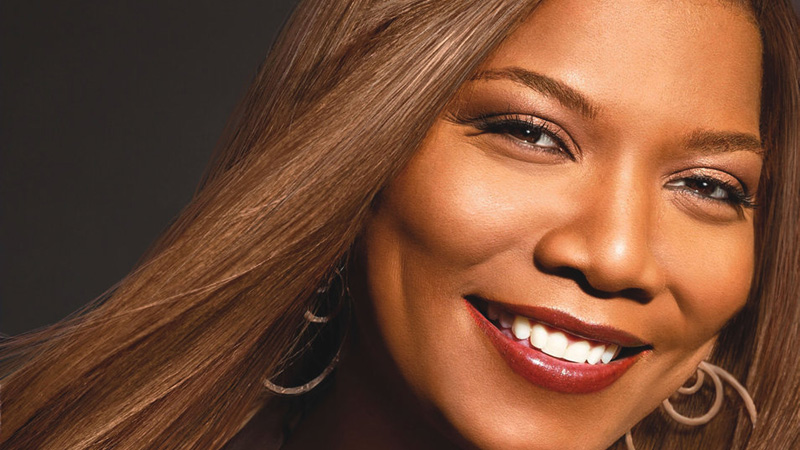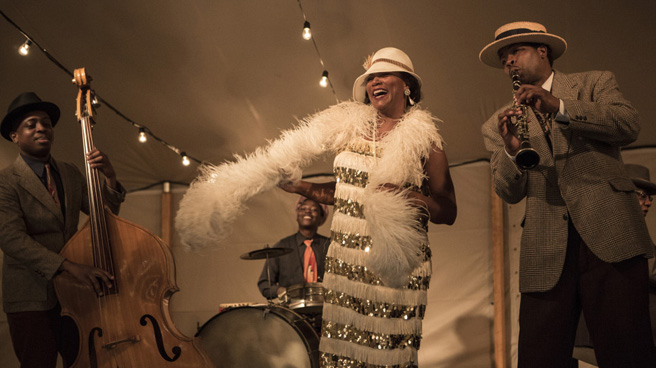
By Diane Haithman | Deadline Hollywood
Queen Latifah’s “new” movie, HBO’s Bessie, actually has been on her radar for more than 20 years. Latifah was best known as a rap artist in the 1990s when producers Richard D. Zanuck and Lili Fini Zanuck approached her about portraying the legendary Bessie Smith, “Empress of the Blues.” The project already had gone through various twists and would go through a few more before finally resurfacing at HBO with Latifah as an executive producer and Pariah helmer Dee Reese directing and sharing screenplay credit with Christopher Cleveland and Bettina Gilois. In a recent conversation, Latifah talked about her long journey from Queen to Empress.
Why was this story important enough to hang on to for over two decades?
At that time, it was Bruce Beresford directing, the Zanuck Company and a $30 million budget. It would have been a huge project. It definitely would have been the first project where I really was able to show the range that I have inside as a performer, not just as a rapper.
Were you a fan of Smith’s music?
I didn’t know who Bessie was initially, but just kind of doing a little homework on her and on her music and on her life and her tragic death, I felt like there was so much to play with and explore as an artist. It was something I never let my agent or my manager forget: “What’s the status of Bessie? Where is it right now?” Five different sets of writers later we finally got it made, but it’s gone through a lot of changes.
Weren’t you too young and green for such a powerful role in the ’90s?
I would have had to really work and really, really dig in, sink my teeth into it to pull it off. I’m pretty well known for not trying to do things that I don’t think I’m capable of, but if I believe I can pull it off then I’m going for it 150 percent.
Even though you thought you could play this part 20-odd years ago, are you glad now that you had to wait?
I’ve grown as an actor and producer and so this was something that we were all able to collectively make happen once Dee wrote the pass on the script that she did. I felt like it was either now or never.
You’ve had tremendous success in music. Did you always know you wanted to segue into acting?
I knew my freshman year in high school that I wanted to be an actor. (I did) Godspell in high school. I went to an all girls’ Catholic high school my freshman year, and so the boys came from an all boys’ high school to be in this play. I remember we had to carry the body of Jesus down the aisle, and I began to cry because Jesus had been crucified and had died. I just remember walking past my aunt and my uncle… They felt it, and I liked that feeling of being able to move someone emotionally in that way.

“One of the fun things about the movie is the humor of it, dealing with some of these difficult subjects with humor,” Latifah says about portraying the blues singer Bessie Smith, who not only dealt with tremendous success but also addiction and depression.
Does Bessie’s story still resonate?
Whether it’s (her) bisexuality, whether it’s abuse, alcoholism, or depression, all these things are relevant right now. But I think one of the fun things about the movie is the humor of it, dealing with some of these difficult subjects with humor, dealing with them as they actually would happen, rather than saying, “Hey, we’re about to talk about this and explain why this is wrong,” you know? Sometimes you don’t know you are changing the world.
There’s a quiet scene with Bessie in front of a mirror, nude from the waist up, confronting herself. Was that difficult to play?
(Laughs.) Luckily my friends called me “naked girl” because I don’t really like clothes anyway. I gained 10 pounds when I went to Atlanta to shoot this—I felt like that was more natural, more real for that scene. I think it’s one of the most beautiful scenes in the film—and powerful—because it is her, stripped down. She’s absolutely alone. She’s successful and yet here she comes home to an empty house. To Dee that was very important—and to myself, being someone who’s a successful entertainer and having been in those moments.
Are you happy with the way Bessie turned out?
I think the response from my peers, in the community, has been fantastic. I think people really love the relationships they see, that I risked it, and that I was not afraid to go for it. And I think that’s so inspirational to a lot of people who support me, who love acting, who love movies. I know I’ve gotten a great response from the African-American community. If someone just finds out who Bessie Smith is, and realizes the impact she had on what you hear in music today, then you will know who she was and how important she was. If you like Mick Jagger, then you like Bessie Smith. If you love Billie Holiday, then you love Bessie Smith. And Janis Joplin, and on and on.
Your second talk show, The Queen Latifah Show, was canceled last year after two seasons. The first was Latifah in 1999. Would you ever try again?
(Laughs.) Every 10 years I’m going to do a talk show. Just to test my mettle.
To see more of Queen Latifah in Bessie, click play below:
